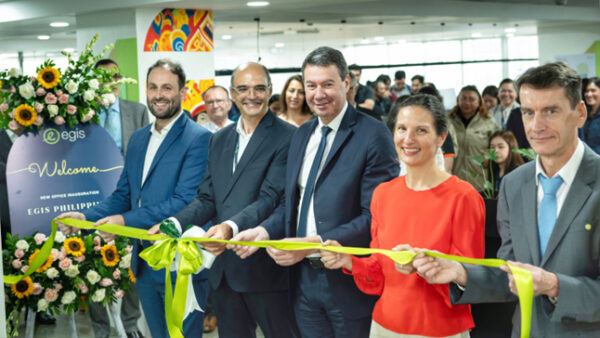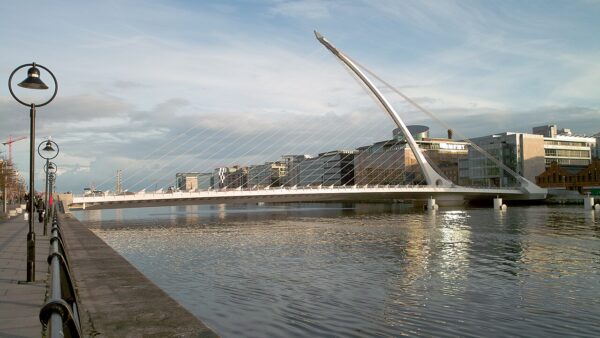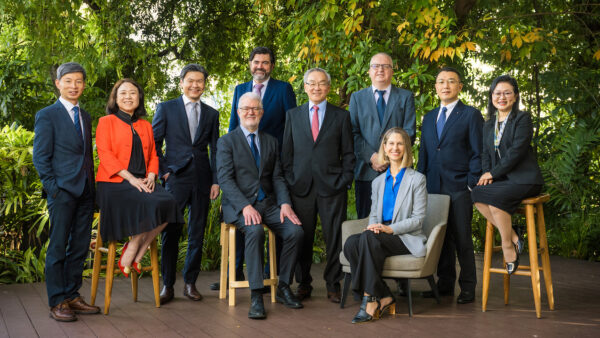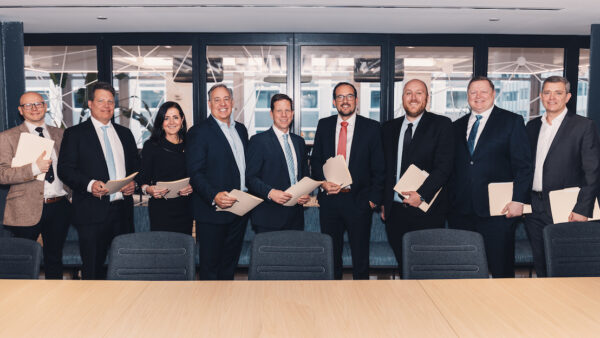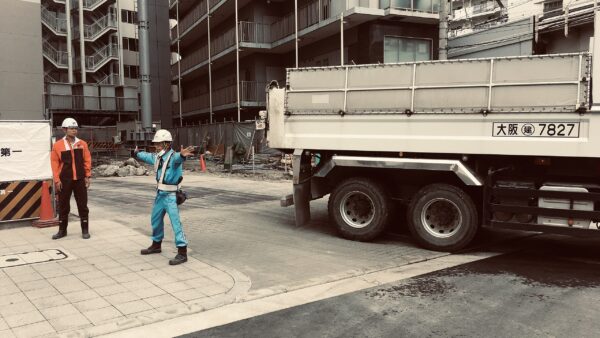Chinese firms are not the only ones building things in Africa. Portugal’s Mota-Engil has been there since 1946 and has grown beyond the former colonies of Angola and Mozambique. To learn about the company’s plans and what they reveal about the future of construction in Africa, GCR talked to Gilberto Rodrigues, Mota-Engil Africa’s chief executive.
Mota-Engil listed its African division on the Euronext stock exchange in Amsterdam earlier this month. The flotation, which involved about 7% of Mota-Engil Africa’s total capital, valued the company at about $1.4bn and followed a decision to pull out of an IPO on the London stock exchange.
Gonçalo Moura Martins, Mota-Engil’s group chief executive, said plans changed owing to “unsupportive conditions” in London, but added that further tranches of the subsidiary’s capital would be floated in the future. All the same, the listing marks a new stage in the firm’s growth.
The company is now implementing a plan hatched four years ago, which is intended to double its turnover from around $1.4bn now to $3bn by 2017. The listing, and further releases of shares, are intended to “harvest the fruits” of that plan. At the same time, it fulfils the parent company’s desire to compensate shareholders for the poor performance of the Portuguese and Polish markets in 2013. Some 20% of Mota-Engil Africa’s capital was gifted to shareholders as an extraordinary dividend this year.
Although the firm still has half of its workload in its home state of Angola, and its headquarters in Johannesburg, it has recently started operating in a total of 11 states, including Cameroon, Ghana, the Republic of the Congo, Zambia and Zimbabwe.
The company’s chief executive in Africa, Gilberto Rodrigues, says Mota-Engil wants bigger projects with bigger clients, and it wants to tap into sub-Saharan Africa’s mineral and energy resource boom.
A contract it won in June this year illustrates the strategy: this is the $3.5bn Mbalam-Nabeba deal it signed with Australian client Sundance Resources. Sundance is planning to exploit iron ore deposits in Mbalam in Cameroon and Nabeba in the Congo but, in order to do that, it has to tackle the problem of inadequate infrastructure, so Mota-Engil Africa has been hired on an engineering, procurement and construction (EPC) basis to build 580km of rail and a deep water mineral terminal in the Cameroon port of Lolabe.
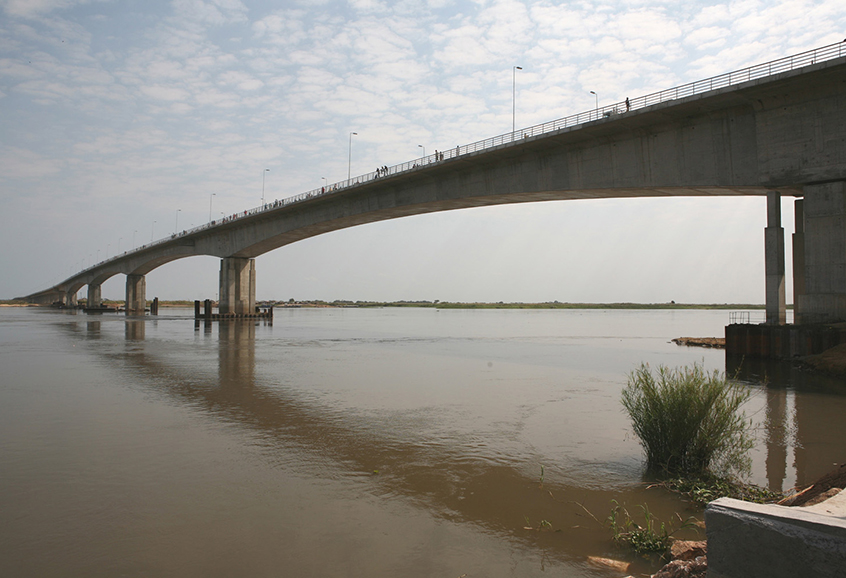
Ponte Armando Guebuza, the bridge Mota-Engil Africa built over the Tete River in Mozambique (Wikimedia Commons)
Another rail scheme is already in progress in Malawi, for Brazilian mining giant, Vale. Rodrigues says: “I think in the past 60 years, only the Chinese have built a railway in Africa. By the middle of next year the rail line should be finished, and we’ll be in position, I think, to have contributed towards solving a problem for Vale and at the same time we will have contributed to unlocking Malawi’s economy.”
Rodrigues believes that the way to fast growth lies in private sector mining and oil and gas. “We’re the company that built all the concrete works at the $9bn Soyo LNG plant in Angola,” he said.
The Chinese ‘opportunity’
The firm’s 68 years’ experience of working in African conditions, and tackling African logistics, has put it in a good position to undertake projects on this scale. However, how has the firm responded to the entry of Chinese contractors in the market, which make up for their relative lack of experience with powerful financial and diplomatic support from the Chinese government?
Rodrigues says: “Mota-Engil Africa is an African company working in Africa so we welcome any competitor to come here and we will compete or work with them. But we don’t see the Chinese as a threat but as an opportunity, and if we can maximise that opportunity, even better.”
One advantage of being an “African company” is that it is used to working in areas with poor or non-existent communications and utilities. “Making sure that the cement and the spare parts are getting in there in time is a big challenge,” he said, “but for a company like Mota Engil which has worked in Africa since 1946, some of those difficulties have become normal.”
But it’s also a matter of workforce: referring to the controversial Chinese practice of bringing workers from China, Rodrigues says: “We have 14,500 local employees and fewer than 1,000 expatriates. The Chinese have a huge population so perhaps they have the ability to import labour, but local employees are part of our strength and we engage African engineers and economists and accountants and all kinds of tradespeople, and we motivate and make them believe in the company. We are here to stay and we need staff that can tackle any kind of challenge.”
What now?
Mota-Engil Africa has built up a great position in one of the most dynamic construction markets in the world. Accounting firm PwC has predicted that, by 2025, sub-Saharan governments will be spending $180bn a year on infrastructure, compared with about $40bn now.
As well as spending more, governments in Africa are becoming more sophisticated about how they spend, with public-private partnership (PPP) models starting to be trialled. Rodrigues says governments are learning from solutions applied in Europe and America, such as build-operate-transfer, or BOT.
“I think the traditional model for doing business in Africa has been slightly but consistently shifting,” he said. “One example is a concession to operate a road connecting Zimbabwe to Malawi through Mozambique (pictured): we built the bridge over the Zambezi river, we’re managing the concession.”
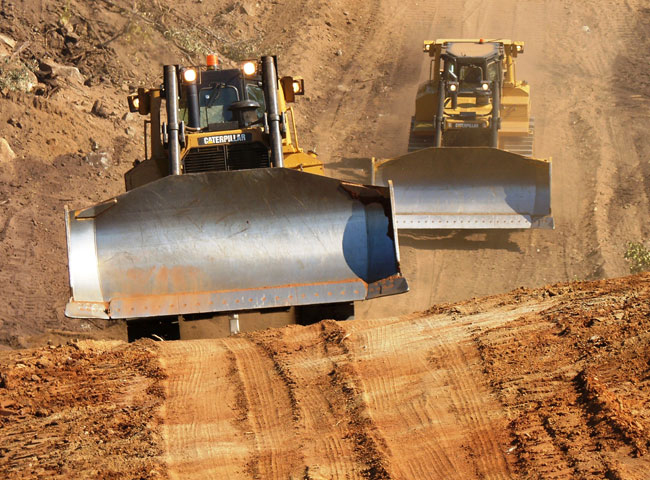
Work under way on the road that will connect Zambia, Mozambique and Malawi (Wikimedia Commons)
However, the public sector only makes up 30% of Mota-Engil Africa’s client portfolio. The rest is private sector clients. For now, that’s fine. Top of the company’s target list are countries seeing annual GDP growth of more than 6%, and which have increasing hydrocarbon interests. “We want to work with industries that are the core business of the economy and are driving them, but are not aligned with government activities,” he said.
In other words, more of the kind of EPC project related to the ambitious mining scheme at Mbalam-Nabeba. But when the economies have begun to mature, Rodrigues says there will a big increase in social infrastructure, with healthcare likely to be an important market segment. Here, one of the hidden benefits of the Euronext listing will come into play, which is that the firm will have to subject itself to regulatory oversight. “It establishes our compliance with regulatory standards and also compliance with European standards of corporate governance,” he said. “It shows how we want to drive our business.”
Rodrigues declines to name specific states that Mota-Engil is targeting, but says: “I see east Africa growing quite fast: Kenya, Uganda, Rwanda even Ethiopia – those are countries with vast reserves of oil and energy production. Also Tanzania, obviously. Zambia is important for us because of copper and now oil.
“In west Africa I can see a number of strong projects but they depend on the way the way the world moves. If China keeps growing and Europe starts growing perhaps some of the projects will be viable and they will transform the west of Africa. South Africa will remain a leading economy, but I see Mozambique as being the most interesting country in years to come because the level of investment in gas is so huge.”





